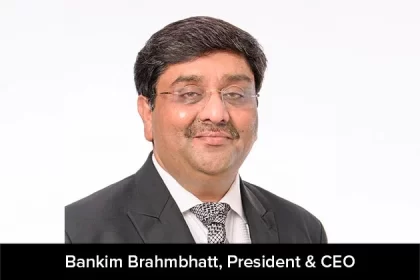As executives, we spend our lives managing a single, invisible, and astronomically expensive commodity: Trust.
Think about your overhead. Think about your OPEX budget. How much of it is really just the cost of creating trust?
We pay auditors to verify our books. We pay lawyers to write iron-clad contracts. We pay bankers and payment processors to be the “trusted intermediaries” for transactions. We have entire compliance departments whose only job is to create a “trusted record” to satisfy regulators.
Trust is the most expensive, time-consuming, and friction-filled part of doing business.
The problem, as an iconic article from the Harvard Business Review so perfectly put it, is that our “contracts, transactions, and records… haven’t kept up” with the digital world. They are, in HBR’s words, “rush-hour gridlock trapping a Formula 1 race car”.
This is the real conversation we need to be having about “blockchain.”
Not Bitcoin prices. Not “crypto-bros.” Not a new asset class for your treasury.
We need to be talking about the underlying technology—the “distributed ledger.”
At its core, blockchain is simply “an open, distributed ledger that records transactions safely, permanently and very efficiently”.
It’s a “trust machine”.
It’s a new kind of database. One that no one controls, is visible to everyone (who’s permitted), and, once a record is written, can never be altered.
For a C-suite executive, the implications of a “radically transparent” and immutable ledger are staggering. This isn’t a “product”; it’s a “paradigm shift” that could potentially eliminate the friction and cost of trust itself.
Use Case #1: The “Provable” Supply Chain
Forget finance for a second. Think about your supply chain.
Right now, you’re operating on a system of “trusted” paper trails. Bills of lading, customs forms, inspection certificates… it’s a mess.
Now, imagine this:
- A sensor on a shipping container logs the temperature to a blockchain. It’s immutable. You know your cold chain was never broken.
- A supplier in Asia logs a part’s “certificate of conformity” to the blockchain. You know it’s the real part, not a counterfeit.
- As HBR points out, this is “provenance tracking”. “Did this really come from that organic farm?” “Was this part really manufactured to spec?” The ledger… proves it.
This isn’t just “tracking”; it’s “truth.” Immutable truth.
Use Case #2: The “Self-Executing” Contract
Now, think about your legal and Accounts Payable departments. How many man-hours are spent monitoring, verifying, and executing contracts?
The “killer app” of blockchain is the “Smart Contract.”
This is a piece of code that is the contract. It’s an “if-then” statement that lives on the blockchain. “IF ‘A’ happens, THEN automatically send ‘B’ payment”.
- “IF the GPS signal from the truck (logged to the blockchain) shows the delivery has arrived… THEN automatically release payment from escrow”.
- “IF a stock’s price hits ‘X’… THEN automatically execute the trade.”
This isn’t “automation”; this is autonomy. It’s a system that slashes overhead by removing the human (and error-prone) intermediary. It’s your legal and A/P departments running 24/7, for pennies, with zero errors.
A Real-World Case Study: The Multi-Billion Dollar “Trust” Industry
If you want to see this technology in its purest form—if you want to see a “live-fire” R&D lab for the B2B financial and legal tech of the future—don’t look at a shipping container.
Look at the one industry that is nothing but high-stakes, high-volume, digital trust: online gaming.
This is an industry historically plagued by trust issues. “Is the game fair?” “Will I really get my money?” “Is the system rigged?”.
Blockchain didn’t just “help” this industry. It solved its core problem. Overnight.
The most sophisticated platforms in this space are, in effect, a blueprint for the high-tech, trustless B2B services of the future.
- They use “Provably Fair” algorithms. This is not “gaming”; this is a form of radical, real-time, user-verifiable auditing. It’s the end of the “black box.”
- They use “Smart Contracts” for payouts. This is not “gambling”; this is an autonomous payment system that can instantly process millions of micro-transactions, or a single multi-million dollar payout, with zero human intervention and 100% accuracy.
When you look at the most advanced crypto betting sites, you have to look past the “front-end” and see the “back-end.” As an executive, I don’t care about the “bet.” I care about the technology.
They are less “casinos” and more “high-tech financial platforms.” They are running on an engine of provable trust. They are executing millions of transactions, securely, transparently, and instantly… without a single human in A/P.
This is where the R&D for your own industry’s future is happening. This is where “digital transformation”—a topic this very magazine covers daily—is being tested under the most extreme, high-stakes conditions.
The question for your next board meeting isn’t “Should we buy Bitcoin?”
The question is, “How much are we spending on trust… and how can this ‘trust machine’ eliminate that cost?”










